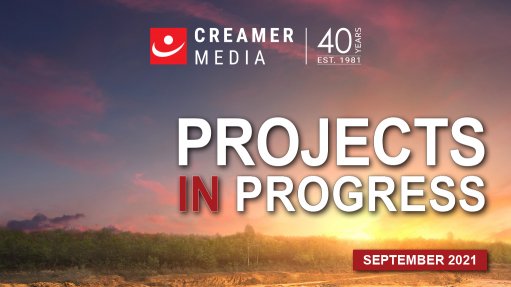
Basic building blocks
Energy, freight transport, water and digital infrastructure have been identified in South Africa’s draft National Infrastructure Plan 2050, as the four critical network sectors that should receive priority over the coming three decades. And, all four of these basic building blocks for economic development and progress will no doubt remain central in the final plan too.
In all four areas, there is significant pent-up demand.
In energy, South Africa is believed to be 5 000 MW short of the electricity capacity required to safeguard itself against growth- and confidence-sapping load-shedding, which besides the Covid-19 restrictions and the recent riots and looting, initially sparked by insurrectionists, remains the most significant threat to job-creating investment.
In the liquid fuels sector, too, investments will be required to ensure there is sufficient storage and transportation infrastructure to cater for the likely closure of domestic refineries, which are unlikely to be in a position to make a genuine business case to justify the investments required to meet the country’s looming cleaner-fuels specifications.
In freight logistics, the infrastructure gaps are less visible than is the case in electricity, where power cuts affect businesses and households alike. Nevertheless, it has become painfully clear that significant investment is required in the country’s ports, where inefficiencies and backlogs are casting doubt over South Africa’s future ‘gateway to Africa’ status.
Theft and vandalism on the rail network, meanwhile, have resulted in even bulk cargo being transferred to the roads, which themselves need not only care and maintenance but significant expansion in some areas.
In the water sector, a whole new sense of urgency is required, where a full-blown crisis – which does not seem far off – carries the threat of being significantly more disruptive than South Africa’s protracted power crisis. At the bulk-water level, climate change poses serious medium- and long-term risks as water-stressed South Africa becomes even drier and hotter. At the utility and municipal levels, on the other hand, maintenance and expansion projects are required to radically improve treatment and ensure stable supply, with some regions already in dire straits.
Then, for South Africa to transition into the new digital economy, significant reform and investment is essential to ensure that affordable and accessible digital infrastructure and services are widely deployed. Without reasonably priced and good quality connectivity, South Africa will not be in a position to create the job and enterprise opportunities that are increasingly associated with this new economy.
Naturally, there are infrastructure needs in many areas beyond these four priority sectors. Nevertheless, progress in these areas will go some way to opening up investment in other infrastructure segments, as well as in the productive sectors of farming, mining and manufacturing.
Without sufficient electricity, it is more expensive to build new mines and minerals processing plants. Without water security, agricultural investment is stymied. Without sufficient ports, rail and roads, entire manufacturing value chains grind to a halt. Without digital infrastructure, communication, coordination and marketing becomes challenging for all businesses.
Absent, these supply-side building blocks, the pipeline of other growth-enhancing and job-generating projects, big and small, will remain insufficient to position South Africa to tackle its deep-seated problems of widespread poverty, rising unemployment and extreme inequality.
To access the Projects in Progress 2021 (Second Edition) flipbook, click here